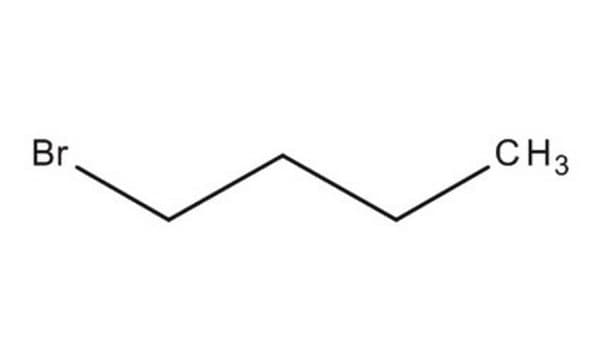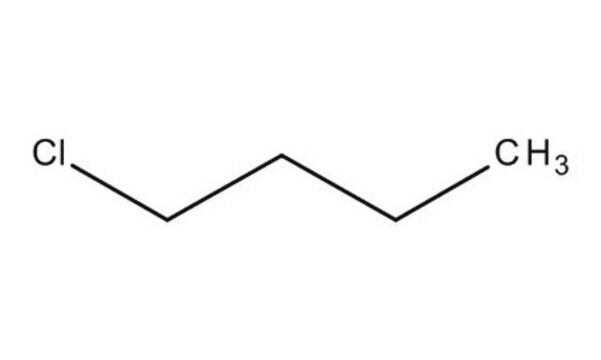08953
1-Bromobutane
analytical standard
Synonym(s):
Butyl bromide
About This Item
Recommended Products
grade
analytical standard
Quality Level
vapor density
4.7 (vs air)
vapor pressure
150 mmHg ( 50 °C)
40 mmHg ( 25 °C)
Assay
≥99.5% (GC)
autoignition temp.
509 °F
shelf life
limited shelf life, expiry date on the label
expl. lim.
2.8-6.6 %, 100 °F
technique(s)
HPLC: suitable
gas chromatography (GC): suitable
refractive index
n20/D 1.439 (lit.)
n20/D 1.440
bp
100-104 °C (lit.)
mp
−112 °C (lit.)
density
1.276 g/mL at 25 °C (lit.)
application(s)
environmental
format
neat
SMILES string
CCCCBr
InChI
1S/C4H9Br/c1-2-3-4-5/h2-4H2,1H3
InChI key
MPPPKRYCTPRNTB-UHFFFAOYSA-N
Looking for similar products? Visit Product Comparison Guide
General description
Application
Signal Word
Danger
Hazard Statements
Precautionary Statements
Hazard Classifications
Aquatic Chronic 2 - Carc. 2 - Flam. Liq. 2 - Repr. 1B - Skin Irrit. 2 - STOT RE 2 Inhalation - STOT SE 3
Target Organs
Liver, Respiratory system
Storage Class Code
3 - Flammable liquids
WGK
WGK 2
Flash Point(F)
50.0 °F - closed cup
Flash Point(C)
10 °C - closed cup
Personal Protective Equipment
Choose from one of the most recent versions:
Already Own This Product?
Find documentation for the products that you have recently purchased in the Document Library.
Customers Also Viewed
Our team of scientists has experience in all areas of research including Life Science, Material Science, Chemical Synthesis, Chromatography, Analytical and many others.
Contact Technical Service
















